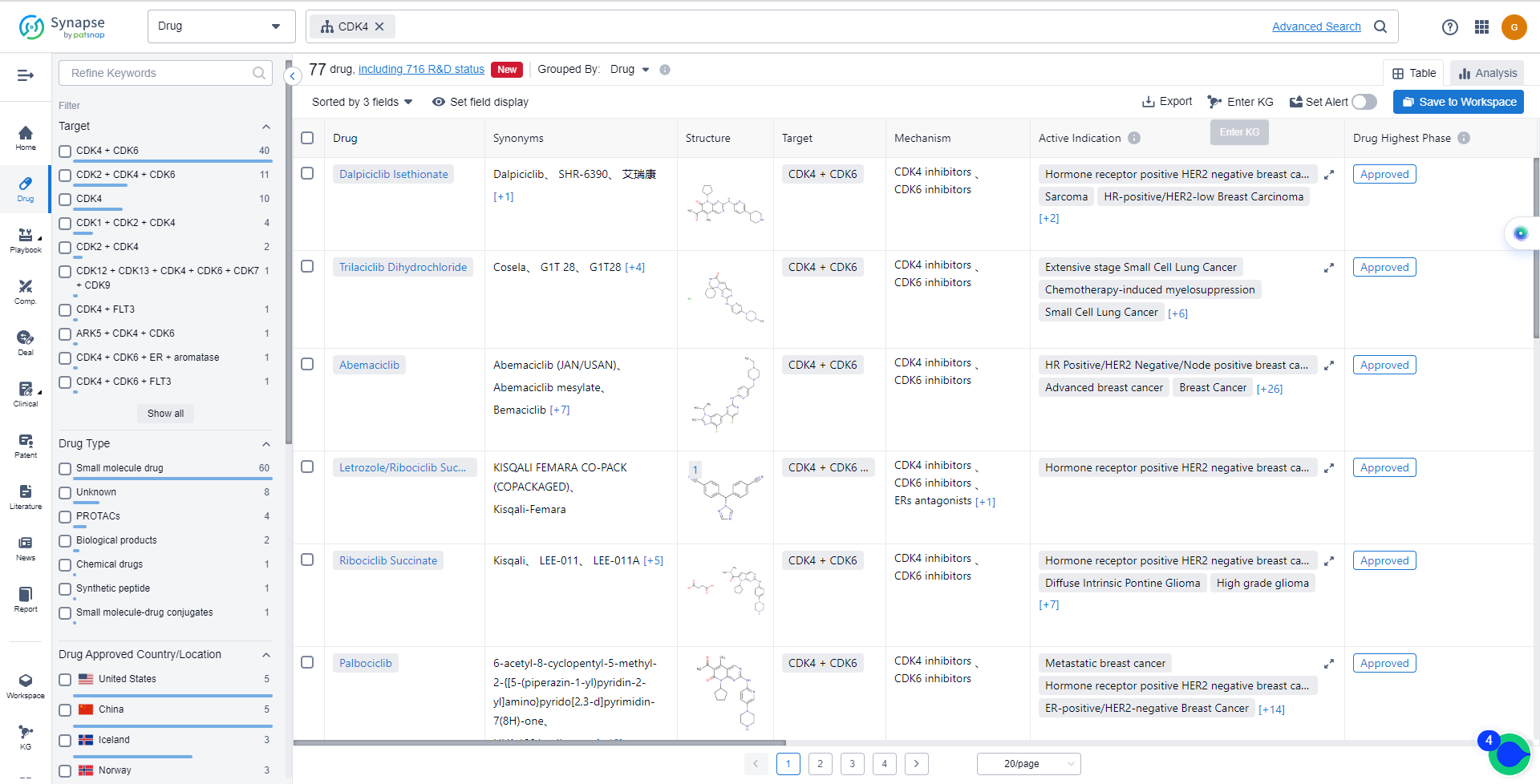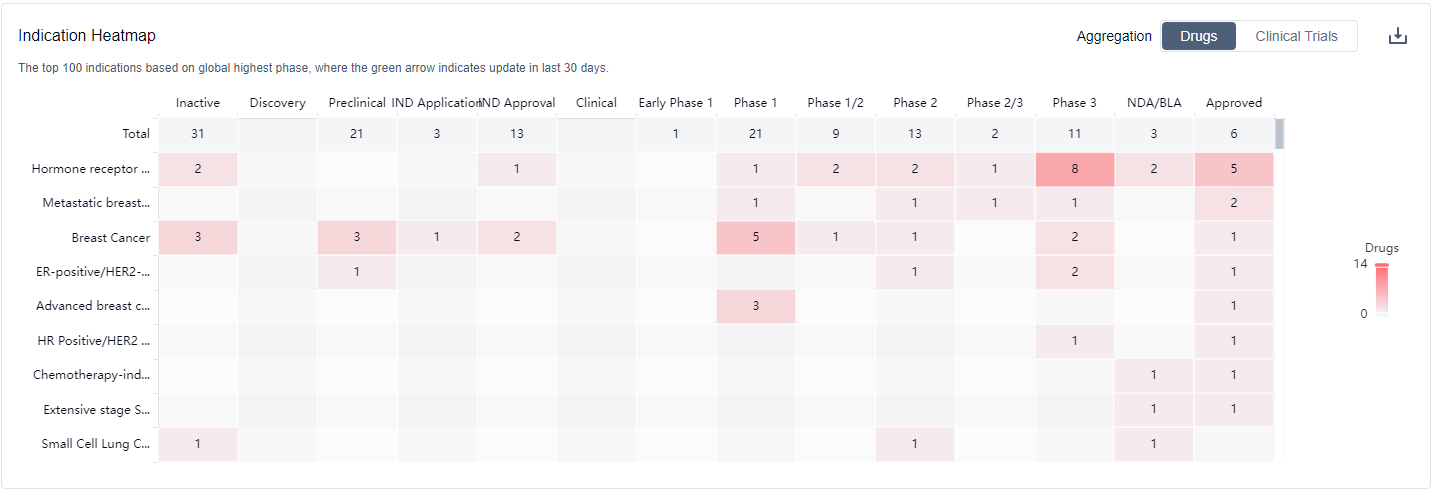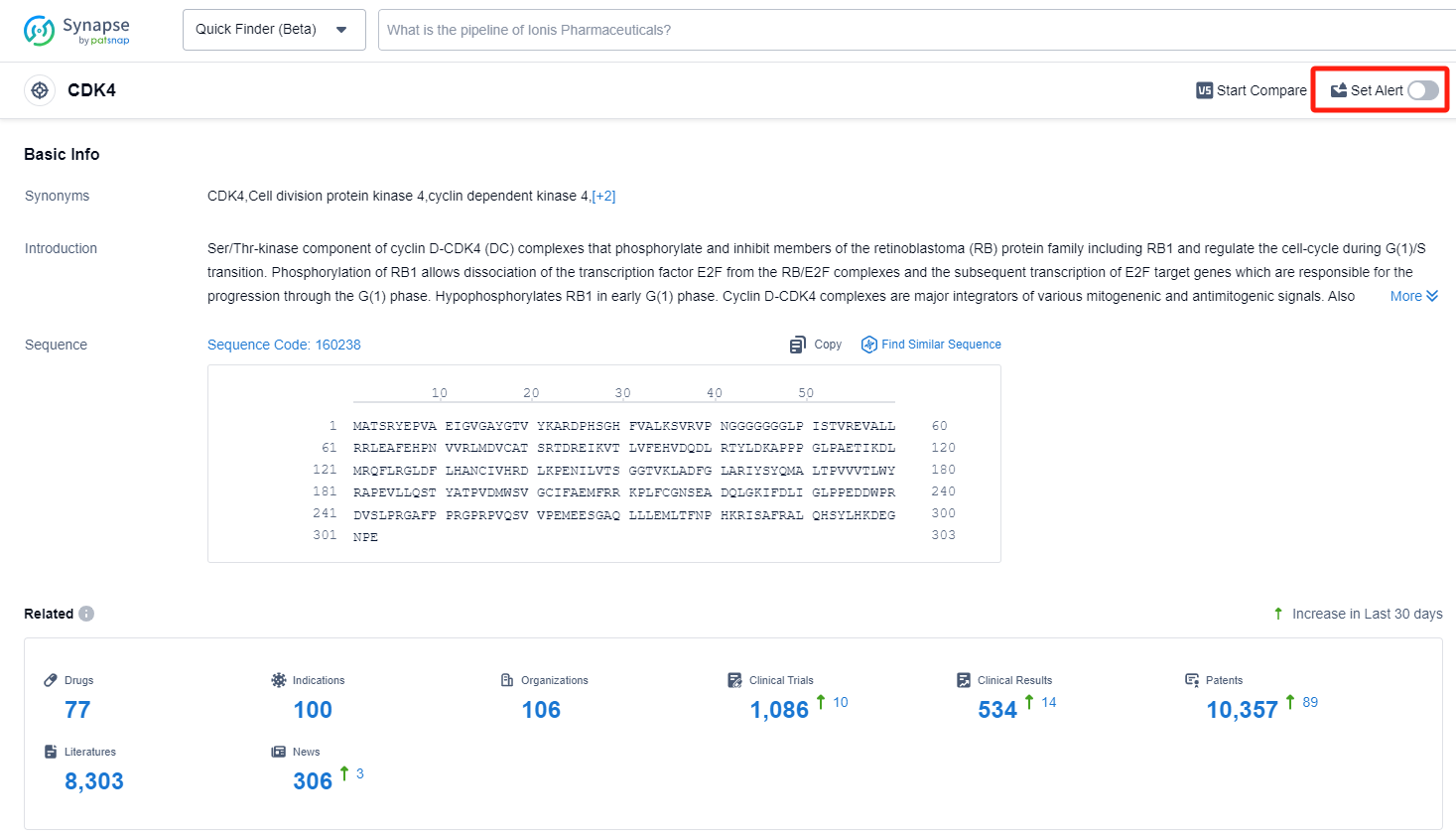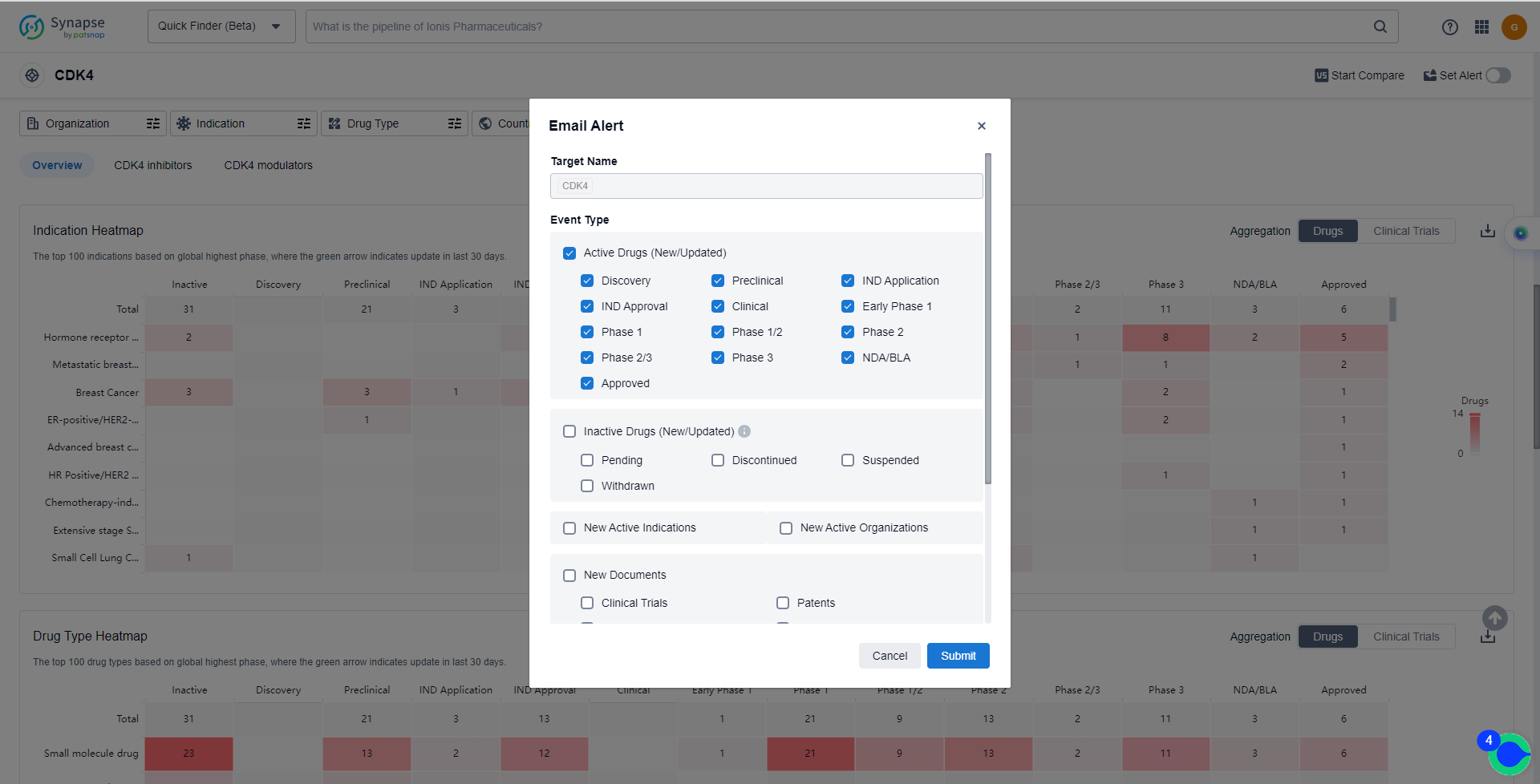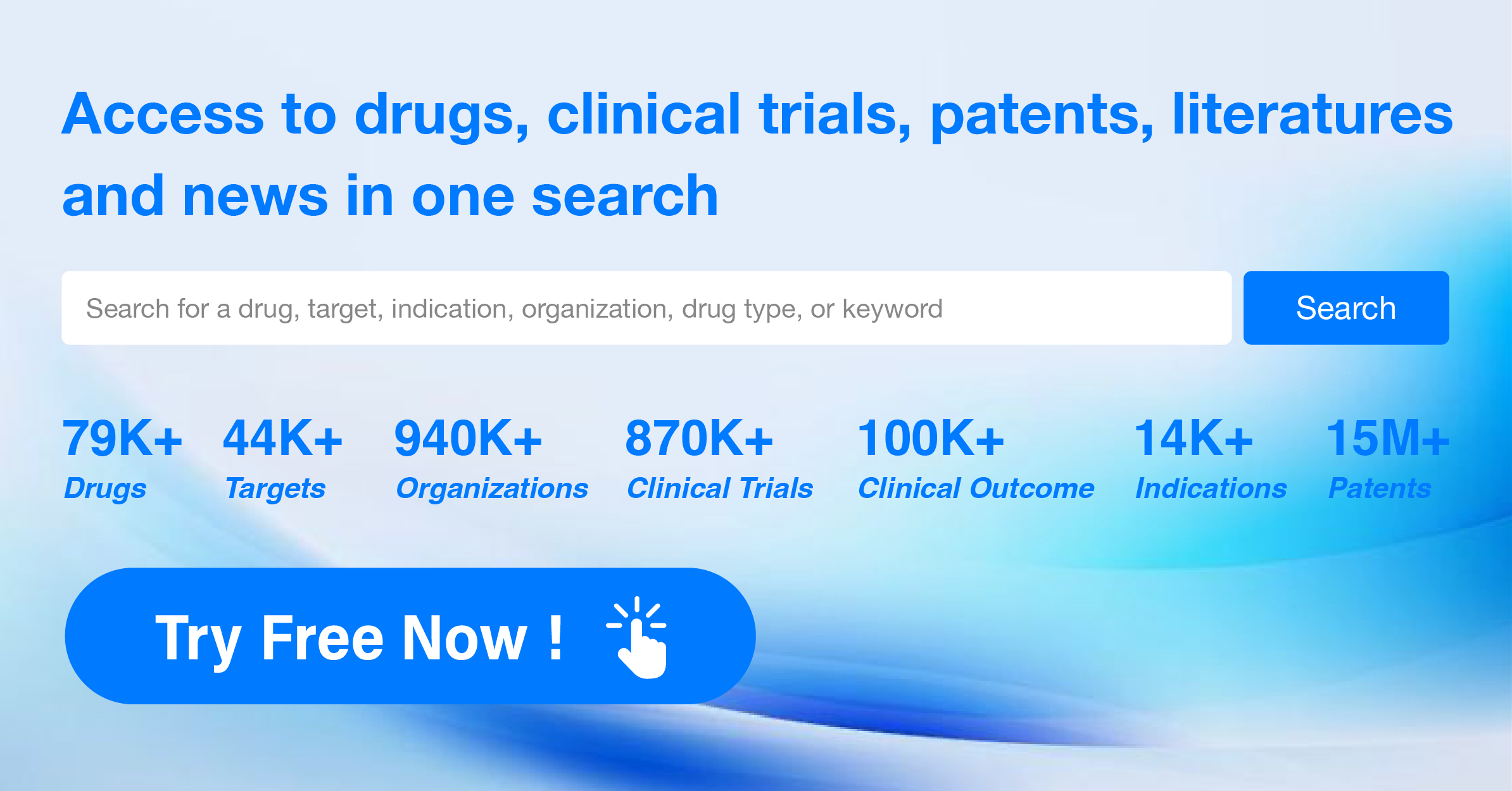What are CDK4 inhibitors and how do you quickly get the latest development progress?
CDK4, or cyclin-dependent kinase 4, is a crucial protein involved in cell cycle regulation in the human body. It plays a significant role in controlling the progression of cells from the G1 phase to the S phase, where DNA replication occurs. CDK4 forms a complex with cyclin D, which activates its kinase activity. This activation leads to the phosphorylation of key proteins involved in cell cycle progression, allowing cells to transition from the resting phase to the active phase of cell division. Dysregulation of CDK4 activity has been associated with various diseases, including cancer, making it an important target for pharmaceutical interventions.
In ER+ breast cancer, estrogen signaling increases the activity of the ER- cell cycle protein D1-CDK4/6 pathway, driving cells from the G1 phase into the S phase, ultimately leading to uncontrolled cell proliferation. CDK4/6 inhibitors can inhibit the formation of a complex between CDK4/6 and cell cycle protein D, block ATP binding, thus interrupting upstream growth signals and preventing the transition from G1 phase to S phase. The CDK inhibitors currently approved by the FDA are all CDK4/6 inhibitors: Pfizer's Palbociclib (PD-0332991, 21), Novartis's Ribociclib (LEE011, 22), Eli Lilly's Abemaciclib (LY-2835219,23) and G1 Therapeutics' Trilaciclib (G1T28,24). The ATP binding domains of CDK4 and CDK6 exhibit high structural similarity, with differences only between Glu144 (CDK4) and Gln149 (CDK6). These four inhibitors are all ATP-competitive inhibitors, capable of binding with the kinase's ATP binding domain.
The analysis of the target CDK4 reveals a competitive landscape with several companies actively involved in the research and development of drugs. Novartis AG and Pfizer Inc. are leading the way with drugs in advanced stages of development. The indications for the target CDK4 primarily focus on breast cancer, with several drugs approved for hormone receptor-positive HER2-negative breast cancer. Small molecule drugs are progressing rapidly, indicating intense competition around innovative drugs. China and the United States are the frontrunners in terms of development, with China showing significant progress. Overall, the target CDK4 presents a promising future in the pharmaceutical industry.
How do they work?
CDK4 inhibitors are a type of drug that specifically target and inhibit the activity of cyclin-dependent kinase 4 (CDK4). CDK4 is an enzyme that plays a crucial role in regulating the cell cycle, specifically in the transition from the G1 phase to the S phase. By inhibiting CDK4, these inhibitors help to prevent the uncontrolled cell growth and proliferation that is characteristic of cancer.
From a biomedical perspective, CDK4 inhibitors are a promising class of drugs in the field of oncology. They have shown potential in the treatment of various types of cancer, including breast cancer, melanoma, and glioblastoma. By blocking the activity of CDK4, these inhibitors can halt the cell cycle progression and induce cell cycle arrest, leading to the inhibition of tumor growth.
CDK4 inhibitors are often used in combination with other cancer therapies, such as chemotherapy or targeted therapies, to enhance their effectiveness. They can also be used as single agents in certain cases. These inhibitors are typically administered orally in the form of pills or tablets.
It's important to note that CDK4 inhibitors are prescription drugs and should only be used under the supervision of a qualified healthcare professional. They may have side effects, such as nausea, fatigue, and low blood cell counts, which need to be monitored during treatment. Additionally, individual response to CDK4 inhibitors may vary, and not all patients may benefit from this type of therapy.
List of CDK4 Inhibitors
The currently marketed CDK4 inhibitors include:
- Trilaciclib Dihydrochloride
- Dalpiciclib Isethionate
- Abemaciclib
- Letrozole/Ribociclib Succinate
- Ribociclib Succinate
- Palbociclib
- Birociclib
- Lerociclib
- BEBT-209
- BPI-16350
For more information, please click on the image below.
What are CDK4 inhibitors used for?
CDK4 inhibitors primarily focus on breast cancer, with several drugs approved for hormone receptor-positive HER2-negative breast cancer.For more information, please click on the image below to log in and search.
How to obtain the latest development progress of CDK4 inhibitors?
In the Synapse database, you can keep abreast of the latest research and development advances of CDK4 inhibitors anywhere and anytime, daily or weekly, through the "Set Alert" function. Click on the image below to embark on a brand new journey of drug discovery!
